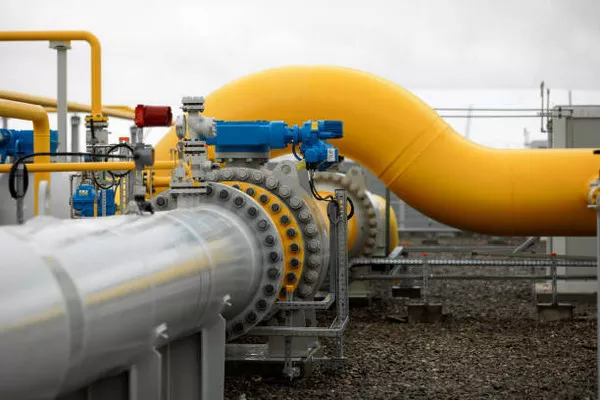Compressors are vital components in various industrial applications, from refrigeration and air conditioning to manufacturing processes and energy production. They play a crucial role in increasing the pressure and reducing the volume of gases or air. However, like any mechanical system, compressors are not immune to failures, which can be costly in terms of downtime and repair expenses. In this article, we will delve into the primary reasons why compressors fail, shedding light on the importance of regular maintenance and proactive monitoring.
Lack of Proper Maintenance
One of the most prevalent reasons for compressor failures is inadequate maintenance. Like any other machinery, compressors require regular servicing and upkeep to ensure their optimal performance and longevity. When maintenance is neglected, it can lead to issues such as increased wear and tear, reduced efficiency, and, ultimately, complete breakdowns.
Regular maintenance tasks for compressors include checking and replacing filters, lubricating moving parts, inspecting electrical components, and monitoring pressure levels. Overlooking these routine tasks can result in unnecessary stress on the compressor, causing it to fail prematurely.
Dirty or Contaminated Components
Compressors rely on clean and dry air or gas to operate efficiently. When the air intake or gas supply contains contaminants such as dust, dirt, oil, or moisture, it can lead to the fouling of critical components within the compressor. This, in turn, causes wear and tear, increased friction, and reduced performance.
To prevent this, it is crucial to have proper filtration and moisture removal systems in place. Regularly changing or cleaning filters and ensuring the quality of the intake air can significantly extend the life of a compressor.
Overheating
Overheating is a significant concern for compressors, as it can result in severe damage to vital components like valves, seals, and motor windings. There are several reasons why compressors may overheat, including:
a. Excessive Operating Temperatures: Operating a compressor in an environment with high ambient temperatures can lead to overheating. In such cases, it is essential to provide proper ventilation and cooling mechanisms to maintain safe operating temperatures.
b. Inadequate Lubrication: Lubrication is essential to reduce friction and heat generation within the compressor. If there is insufficient or contaminated lubrication, it can lead to overheating and premature wear.
c. Blocked or Restricted Cooling Systems: The cooling systems of compressors, including radiators and heat exchangers, must remain unobstructed to dissipate heat effectively. Blockages or restrictions can cause the compressor to overheat.
d. Electrical Issues: Problems with electrical components, such as faulty wiring or overloaded circuits, can lead to excessive heat generation within the compressor motor.
Preventing overheating requires regular inspection, lubrication, and monitoring of operating temperatures. It is also essential to address any electrical issues promptly.
Pressure Fluctuations
Compressors are designed to handle specific pressure ranges. When subjected to pressure fluctuations beyond their intended capacity, it can result in various problems, including component fatigue and leaks. Pressure spikes or drops can be caused by issues such as faulty pressure regulators, blocked valves, or improper system design.
To mitigate pressure-related failures, it is crucial to install pressure relief valves and pressure monitoring systems. Regularly inspecting and maintaining these components can help prevent damage due to pressure fluctuations.
Wear and Tear
Compressor components, such as pistons, valves, and seals, are subject to continuous wear and tear during operation. Over time, this wear can lead to reduced efficiency and eventual failure. Regular maintenance, including inspections and component replacements, is essential to address wear and tear proactively.
Inadequate Lubrication
Proper lubrication is vital to reduce friction and heat within a compressor. When lubrication is inadequate or of poor quality, it can lead to increased wear on moving parts and premature failure. Monitoring lubricant levels and quality, as well as adhering to manufacturer-recommended lubrication schedules, is crucial to prevent this type of failure.
Contaminated Lubricants
In addition to the quantity and quality of lubrication, the cleanliness of lubricants is equally important. Contaminated lubricants can introduce foreign particles or substances that can damage internal components. Regularly monitoring and analyzing lubricant samples can help detect contamination early and prevent potential compressor failures.
Electrical Issues
Compressors rely on electrical components for various functions, including motor operation, control systems, and safety features. Electrical problems such as short circuits, voltage fluctuations, or motor failures can lead to compressor failures or malfunctions. Regular electrical inspections, testing, and maintenance are essential to ensure the reliable operation of compressors.
Corrosion
Corrosion can affect both the internal and external components of a compressor. It can weaken materials, cause leaks, and reduce the overall integrity of the system. Corrosion is often a result of exposure to harsh environmental conditions, moisture, or chemical contaminants. Implementing corrosion-resistant materials and protective coatings, as well as regular inspections, can help mitigate this issue.
Inadequate Training and Operator Error
Human error, often due to inadequate training or lack of understanding of compressor systems, can contribute to failures. Incorrect operating procedures, failure to address warning signs, and improper adjustments can all lead to compressor malfunctions or breakdowns. Providing comprehensive training to operators and ensuring they follow proper procedures is essential to minimize these risks.
Conclusion
Compressor failures can be costly in terms of downtime, repairs, and lost productivity. Understanding the common causes of compressor failures is essential for maintaining reliable and efficient operations. Regular maintenance, monitoring, and adherence to manufacturer guidelines are key to preventing these failures and extending the lifespan of compressors. By addressing these issues proactively, industries can reduce the risk of unexpected downtime and associated financial losses.

